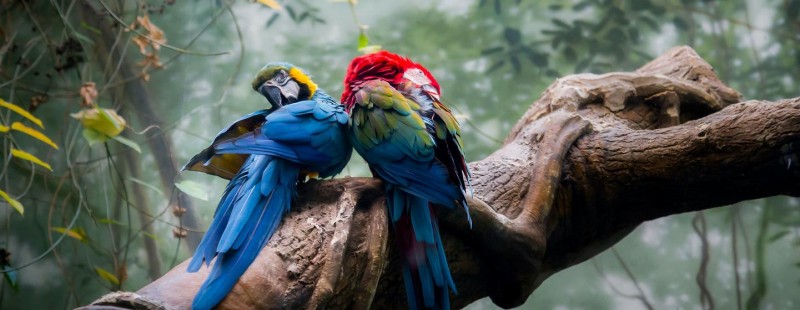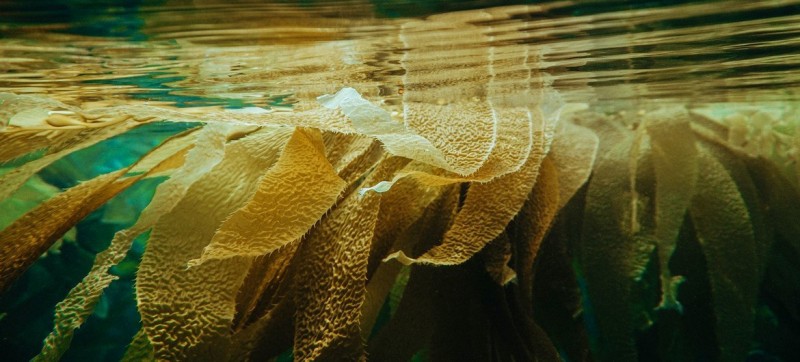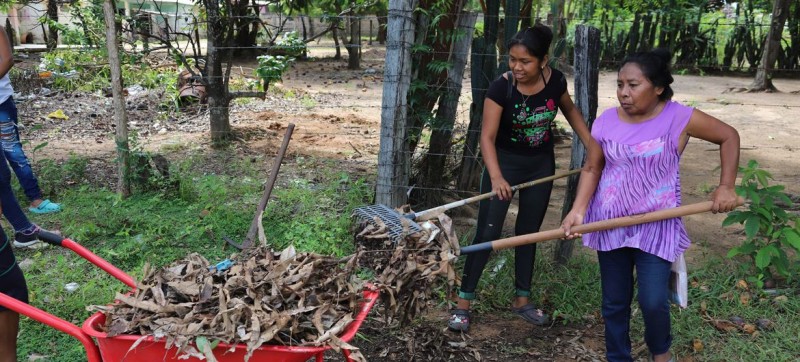Unsplash/Alan Godfrey Around one million species are facing extinction, according to a report from IPBES, an independent intergovernmental science and policy body supported by the UN. It may be surprising to learn that even giraffes, parrots, and oak trees are included in the list of threatened species, as well as cacti and seaweed. It may be surprising to learn that giraffes, parrots, and even oak trees are included in the list of threatened species, as well as cacti and seaweed. Kelp, a type of seaweed, can be fed to animals and could help to reduce greenhouse gas emissions. The current biodiversity crisis will be exacerbated, with catastrophic results for humanity, unless humans interact with nature in a more sustainable way, according to UN experts. Women in Rio Negro preparing the soil for planting. The report illustrates the importance of indigenous people being able to secure tenure rights over their land, as they have long understood the value of wild species and have learned how to use them sustainably. 
Seaweed is one of the planet’s great survivors, and relatives of some modern-day seaweed can be traced back some 1.6 billion years. Seaweed plays a vital role in marine ecosystems, providing habitats and food for marine lifeforms, while large varieties – such as kelp – act as underwater nurseries for fish. However, mechanical dredging, rising sea temperatures and the building of coastal infrastructure are contributing to the decline of the species.
The world’s trees are threatened by various sources, including logging, deforestation for industry and agriculture, firewood for heating and cooking, and climate-related threats such as wildfires.
It has been estimated that 31 per cent of the world’s 430 types of oak are threatened with extinction, according to the International Union for Conservation of Nature (IUCN) Red List of threatened species. And 41 per cent are of “conservation concern”, mainly due to deforestation for agriculture and fuel for cooking.
Giraffes are targeted for their meat, and suffer from the degradation of their habitat due to unsustainable wood harvesting, and increased demand for agricultural land; it’s estimated there are only around 600 West African giraffes left in the wild.
Catastrophic results for humanity
“The IPBES report makes it abundantly clear that wild species are an indispensable source of food, shelter and income for hundreds of millions around the world,” says Susan Gardner, Director of the Ecosystems Division at the United Nations Environment Programme (UNEP).
“Sustainable use is when biodiversity and ecosystem functioning are maintained while contributing to human well-being. By continuing to use these resources unsustainably, we are not just risking the loss and damage of these species’ populations; we are affecting our own health and well-being and that of the next generation.
Indigenous knowledge
Examples of the kinds of transformative changes that are needed to reduce biodiversity loss, include an equitable distribution of costs and benefits, changes in social values, and effective governance systems.
Currently, governments around the world spend more than $500 billion every year in ways that harm biodiversity to support industries like fossil fuels, agriculture, and fisheries. Experts say these funds should be repurposed to incentivize regenerative agriculture, sustainable food systems, and nature-positive innovations.UN Biodiversity Conference
Previous ArticleUganda:Taking Pride in Honey Business | Global Focus | UN Story
Related Posts
WEJ PROJECTS
© 2009-2025, World Economic Journal. All Rights Reserved. Republishing permitted with attribution and active hyperlink to the original source.

